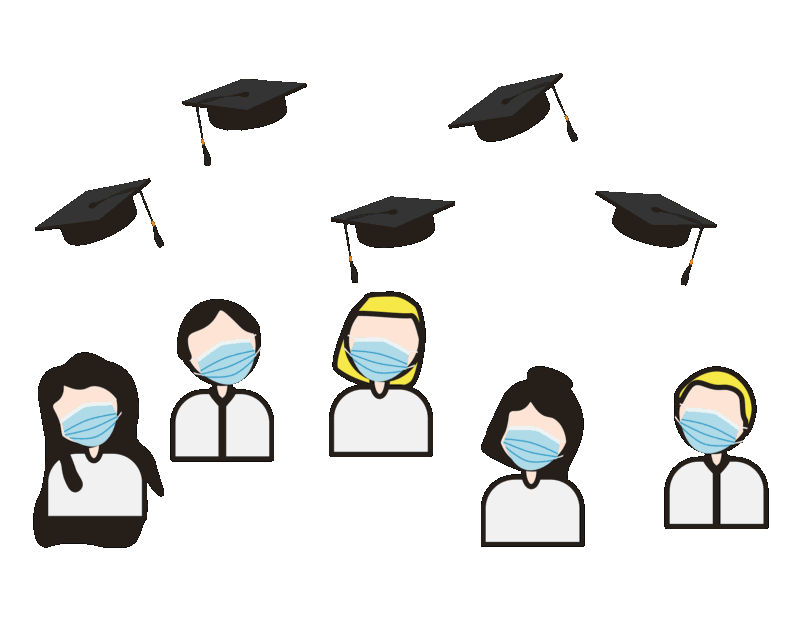For new grads — Postpartum depression: It’s not just for moms!
I had really bad Postpartum Depression (PPD) for about 1.5 years after having my daughter. PPD has a significant chemical component, but…
I had really bad Postpartum Depression (PPD) for about 1.5 years after having my daughter. PPD has a significant chemical component, but it’s also behavioral and situational:
Your life has changed forever and that throws your self-concept into question, especially if it wasn’t built on being a mother.
You are seriously sleep-deprived, dehydrated, exhausted, and tired of a tiny person being attached to you in some way all the time.
Everyone tells you what to do and how you’re doing it wrong, forever. You are already grappling with the reality that you have no fucking idea what you’re doing and you will be failing, forever.
This is a potent cocktail. But the thing is, there are other times in our lives when we have very similar experiences, minus the hormones. Getting my Ph.D. was one such experience.
I didn’t blog much in between finishing my degree and getting my current job. This is because I was in an increasingly deep depression with a garnish of anxiety. For me, depression is always almost over. Any minute it’s going to lift and I’m going to feel normal again, so I avoid the fact that I’m actually a hot mess and may remain that way for some time. My blog during my PPD is always, it’s getting better! And reading it now I’m like, “Girl, it’s really not. Buckle in.” But when I look at the circumstances surrounding writing my dissertation and getting my Ph.D., it looks awfully familiar:
I was recovering from stress-induced sickness, drug side-effects, and emotional upheaval.
I was terrified I wouldn’t be able to get a job and start paying off the massive debt I had accrued and would run my family’s finances into the ground.
There was no roadmap for success and I had no experience trying to get work as a qualified Ph.D.
People say stupid shit like, “so you’re going to go to school forever” or “what are you going to do with a Ph.D. in that?” or “Academia is really competitive” (Thanks, Captain Obvious).
So basically, my mental and physical health took a big hit due to crazy high stress, which made me have to take steroids (which are hormones), which further screwed up my mental and physical health. And I was transitioning to a new career/life phase and had no bloody idea what I was doing. Um.
So why am I thinking about this right now? Because many of my graduating students are freaking out about what life is going to be like on the other side while getting hazed by their elders for not knowing what they can’t possibly know yet. I’ve found myself giving them very similar advice to what I was given a lifetime ago about post-performance letdown. We get all amped up for this one big moment, and then (if you’re a singer) you go eat a big meal, drink a bunch of wine, and fall facedown in your bed and wake up the next day wondering why everything is awful. I had a shrink who was a musician, and he said we need to be as deliberate and gentle with ourselves after a big event as we are before.
I do not always take this advice, but I dispense it freely and try to remember it when I’m facing the end of a cycle. So students, if you are graduating have fun, celebrate, and then remember to work some extra self-care into your routine after the excitement is over because that is when shit often gets real. Take naps. Go running. Anything to compensate for the endorphin crash. Post-graduation I ended up working out almost every day because I could literally burn off my anxiety that way. Netflix binges are totally cool, but make sure you are doing something that keeps your body running optimally because that will help your mind. I also ended up increasing my medication and decreasing it after things leveled out. This is totally okay.
While using PPD as a diagnosis for post-graduation yuck is technically incorrect, it works symbolically. You have essentially birthed a new version of yourself. That self is insecure, unsure, excited, and exhausted. So set up some mechanisms and safety checks now so you can check in with yourself later and evaluate how you are doing. Life change is hard, and some people can be dicks when you are feeling vulnerable and worn out. Take care of yourself and don’t let the assholes get you down.




